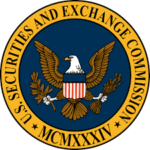The SEC charged UBS Financial Services with compliance failures related to its sale of exchange-traded products.
 UBS Financial Services Inc. has reached an $8 million settlement with the SEC over allegations that the firm had compliance failures via the sales of exchange-traded products (ETPs) tied to market volatility.
UBS Financial Services Inc. has reached an $8 million settlement with the SEC over allegations that the firm had compliance failures via the sales of exchange-traded products (ETPs) tied to market volatility.
UBS Financial Services Inc. is a broker-dealer and investment adviser that has had dual registration with the SEC since 1971, according to the regulator. The principal location for the firm is in Weehawken, New Jersey, and it’s a subsidiary of UBS Group AG, which has co-headquarters in Zürich and Basel, Switzerland.
SEC officials allege that “this matter concerns UBS’s failure to adopt and implement written policies and procedures reasonably designed to prevent unsuitable investments in volatility-linked-exchange-traded products … between January 2016 and January 2018.”
This alleged failing then led to financial advisers in the UBS Portfolio Management Program (PMP) purchasing and holding an ETP “called iPath S&P 500 VIX Short-Term Futures ETN (VXX) for their advisory clients for durations that were inconsistent with the purpose of the product, as described in its offering documents,” according to the SEC order.
So, starting in early 2016, some PMP financial advisors “exercised their discretionary authority to purchase VXX for advisory clients and held the investment for lengthy periods, including hundreds of accounts that held VXX for over a year,” according to the SEC order.
“VXX is designed to provide exposure to the implied volatility of the S&P 500 by replicating a strategy of continuously maintaining a rolling portfolio of one and two-month futures contracts on the CBOE volatility index (the VIX),” according to the order. “The constant daily buying and selling of the VIX futures contracts generates roll costs in most market environments. As these roll costs are deducted from VXX’s returns, its value was likely to … decrease when held for extended periods, even if the VIX remained flat or positive during that period.”
The SEC order reports that during the period in question, “approximately 1,882 PMP client accounts held VXX for extended periods, with hundreds of accounts holding VXX for over a year. The increased risk from the extended holding periods resulted in meaningful losses on their VXX investments,” the SEC alleges in its order.
 But by September and October 2017, the UBS ETF Desk, PMP management, and the branch supervision group investigated whether “VXX should be made ineligible for purchase by PMP [financial advisors] because they perceived that certain PMP [financial advisors] were not using VXX properly,” according to the SEC order.
But by September and October 2017, the UBS ETF Desk, PMP management, and the branch supervision group investigated whether “VXX should be made ineligible for purchase by PMP [financial advisors] because they perceived that certain PMP [financial advisors] were not using VXX properly,” according to the SEC order.
“In October 2017, the ETP Committee recommended that VXX should be made ineligible for purchase by PMP [financial advisors]. Shortly thereafter, the governance committee that oversees UBS’s advisory programs accepted the ETP Committee’s recommendation, and VXX was made ineligible for purchase,” according to the SEC order. UBS subsequently stopped “further purchases of VXX and required that PMP accounts currently holding VXX exit those positions by January 2018.”
SEC officials acknowledge UBS’s actions but maintains that these circumstances were violations of securities laws and rules.
“Without admitting or denying the SEC’s findings, UBS agreed to cease and desist from violations of Rule 206(4)-7 of the Investment Advisers Act of 1940, a censure, and disgorgement and prejudgment interest of $112,274 and a civil penalty of $8 million, which will be distributed to investors harmed by the conduct at issue,” according to the SEC.
FTF News reached out to UBS for a response to the SEC’s actions.
“After fully cooperating with the SEC, UBS is pleased to have resolved this matter related to the firm’s policies and procedures for one product in one of its discretionary trading programs between 2016 and 2018,” a UBS spokesperson tells FTF News. “As the SEC acknowledged, UBS proactively reviewed and removed the product from its program before being contacted by the SEC.”
The UBS case is the sixth enforcement effort “arising from the Enforcement Division’s ETP Initiative,” according to the SEC. The initiative is led by the division’s Complex Financial Instruments Unit.
“Advisory firms must protect clients from inappropriate investments in complex financial products,” says Daniel Michael, chief of the SEC Enforcement Division’s complex financial instruments unit, in a prepared statement. “We will continue to scrutinize firms’ policies and procedures related to these risky products, and we will take action when they are inadequate.”
Need a Reprint?